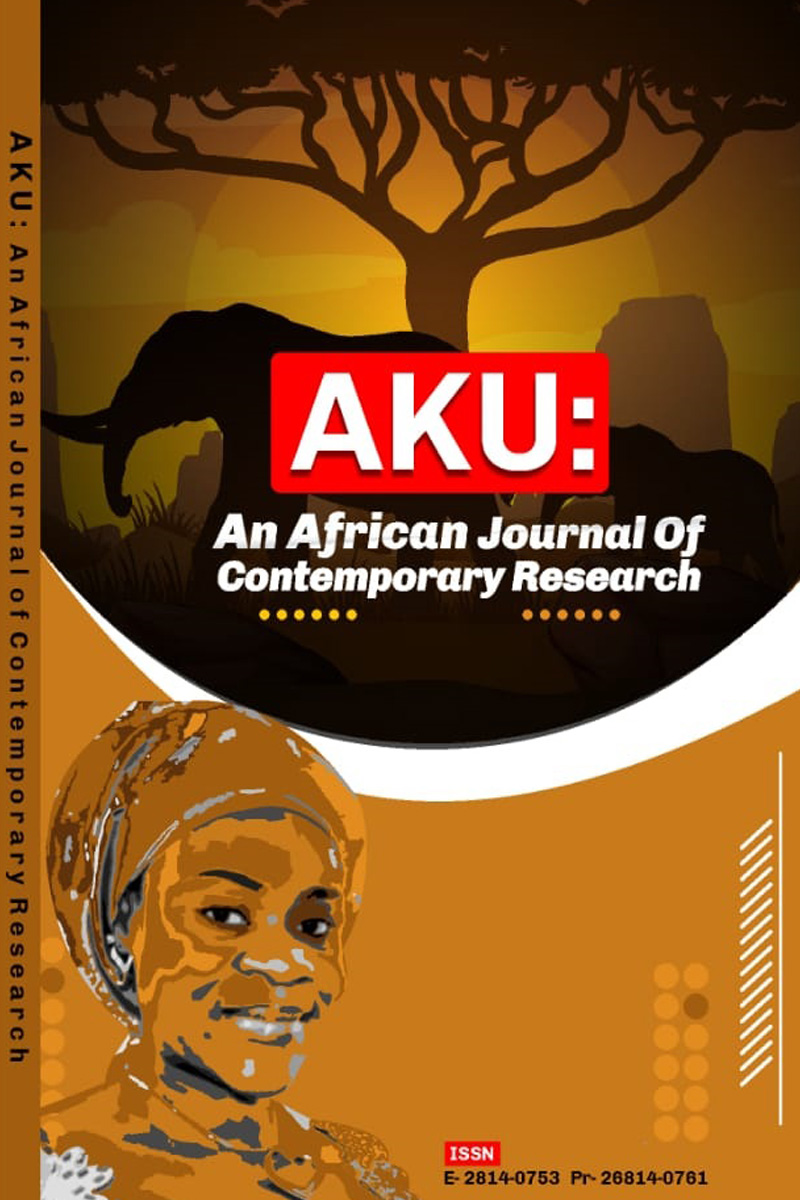 AKU - An African Journal of Contemporary Research (AAJCR) (Vol. 1 No. 1, 2020)
THE INFLUENCE OF THE SPIRITS OF NDIUKE AND NGWUGWA/NJUJU ON THE BEHAVIOUR OF THOSE THEY POSSESS
AKU - An African Journal of Contemporary Research (AAJCR) (Vol. 1 No. 1, 2020)
THE INFLUENCE OF THE SPIRITS OF NDIUKE AND NGWUGWA/NJUJU ON THE BEHAVIOUR OF THOSE THEY POSSESS
ABSTRACT
It is only religion that is truly sensitive to the fullness of man's dignity, nature and potentialities; man cannot live by politics and science alone but ought to delve into the spiritual problems that have robbed some individuals of their dignity. The abnormal behaviours associated with spirit possession have led to misperception of their true character traits as they are sometimes misjudged as insane, dementia, rude, saucy and sometimes, overbearing. Spirit possessions like 'Agwu', 'Owummiri', 'Ogbanje', 'Ndiotu', 'Diuwa/Nwunyeuwa' 'Ndiuke' and 'Ngwugwa/Njuju' are not neurological, psychological or psychiatric problems rather; they are mystics and spiritual forces beyond human comprehension and control. Ndiuke (Evil spirits of dead children) and Ngwugwa/Njuju (Spirit of disappearance and wandering). This research method is qualitative and sociological in approach to investigate the influence of the spirits of Ndiuke and Ngwugwa/Njuju on the behaviours of those they possess and those related to them. As the name implies, Ndi means People while Uke means Age-Grade. Therefore, Ndiuke means Age- Grade evil spirits of dead children that possess children at birth, as neonates, infants, and teens even at the adolescent stage of life to old age. However, this research will be narrowed to Ndiuke and Ngwugwa/Njuju because they seem to be forgotten in the minds of researchers hence, the need for this paper to buttress the point that no matter how neglected it may seem, they are existing phenomena in religion and spirit possession.

